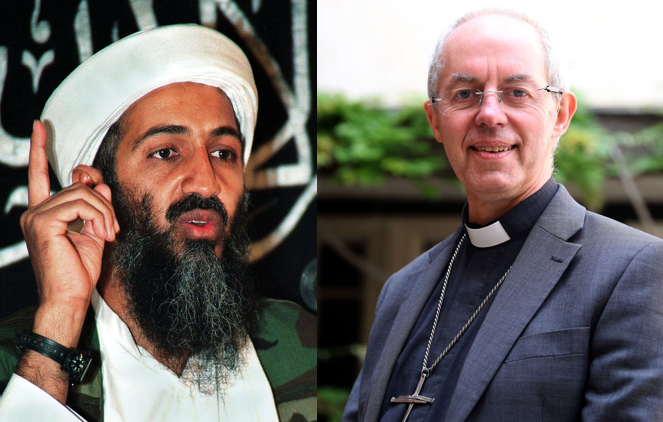The Archbishop of Canterbury, Justin Welby, recently declared that deep inside Osama bin Laden, a “good Christian could have been found.”
In an interview that left many with eyebrows firmly raised, Welby expounded on his unique theological perspective. “You see, we should never underestimate the transformative power of divine intervention. Inside the darkest hearts, there’s always a glimmer of hope, a spark of faith waiting to be kindled,” said Welby, while sipping tea and contemplating salvation for even the most notorious figures.
He went on to explain, “Imagine if we had just sent him a care package with a Bible and a ‘Christianity for Dummies’ guide. Who knows, maybe we could have turned him into a fervent choir member or a Sunday school teacher.”
The Archbishop’s remarks have sparked debates about the effectiveness of unconventional missionary strategies, with some suggesting that maybe the Crusades would have been more successful if only they had a more ecumenical approach.
Welby seemed undeterred by the skepticism, stating, “We must not be quick to judge. After all, Jesus did say, ‘Love your enemies.’ Maybe we missed an opportunity to invite bin Laden to the neighborhood potluck.”
Theologians, however, are divided on whether divine grace extends to the mastermind behind the 9/11 attacks. “It’s an interesting perspective, but I’m not sure the disciples had counter-terrorism strategies in mind when spreading the Gospel,” remarked one theologian with a bemused expression.
As the religious world grapples with the unexpected theological insights from the Archbishop, one can’t help but wonder if Welby has a line on where to send Bibles for some divine interventions in contemporary geopolitical conflicts.
















